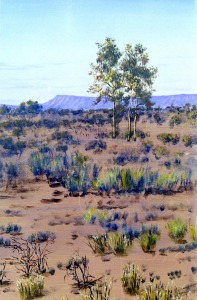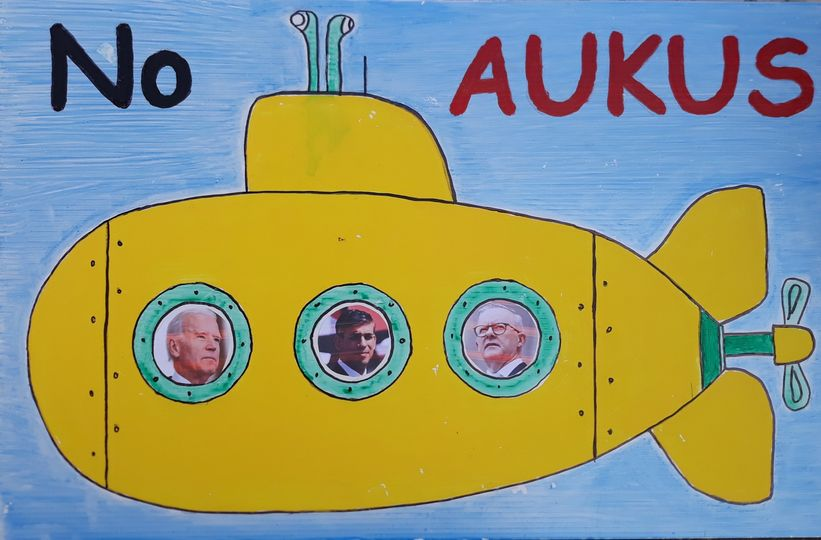Respected Aboriginal women elders explain the importance of the Homelands
 ‘People wanted to go back to homeland’
‘People wanted to go back to homeland’
Mr McLarty said many of the small communities were created in response to government policy last century which saw Aboriginal people forcibly amalgamated into camps with other tribes.
“People wanted to move back to their own homeland,” he said.
“People wanted to go out to their own community, to feel some ownership, because they didn’t feel like they belong here in another tribal area.”
He said the Prime Minister’s comments may come from a lack of understanding of Aboriginal people’s history.
The women said remote communities were being unfairly painted as dysfunctional.
They argued that in most communities, children were safer and happier being raised ‘on-country’, where there was not the steady flow of drugs and alcohol and they could learn the traditional culture.
![]() Remote Aboriginal community closures: Return to country or risk losing traditional homes forever, elders warn http://www.abc.net.au/news/2015-03-11/indigenous-community-members-called-on-to-return-to-country/6304716 By Erin Parke and Rebecca Trigger Senior Aboriginal women from WA’s Kimberley say the Prime Minister’s “lifestyle choice” comments are a wake-up call and people who have drifted from their bush communities should return or risk losing them forever.
Remote Aboriginal community closures: Return to country or risk losing traditional homes forever, elders warn http://www.abc.net.au/news/2015-03-11/indigenous-community-members-called-on-to-return-to-country/6304716 By Erin Parke and Rebecca Trigger Senior Aboriginal women from WA’s Kimberley say the Prime Minister’s “lifestyle choice” comments are a wake-up call and people who have drifted from their bush communities should return or risk losing them forever.
The call comes in the wake of Tony Abbott’s suggestion that living in remote Aboriginal communities was a “lifestyle choice” that could not be endlessly subsidised by the Government.
Senior Miriuwung Gajerrong woman and chairperson of the Kimberley Aboriginal Law and Culture Centre Merle Carter said the comments should spur people into action.
“For all of our people who are living in town, who are fringe-dwellers, just because of alcohol, go back to your communities,” she said.
“With the statement that Premier Colin Barnett made about closing the Aboriginal communities, and Tony Abbott backing him up, this might be a wake-up call.”
The West Australian Government flagged last year that it may cut services to up to 150 remote Indigenous communities, after the Commonwealth announced it was withdrawing funding to the roughly two-thirds it supports.
Ms Carter said Aboriginal groups must unite to fight the State Government’s plans, and condemned the Prime Minister’s choice of words.
“You got the wording wrong – lifestyle. It’s not a lifestyle, it’s our traditional way of life,” she said.
“It’s the only way we know how to live – the best way.”
Bardi elder Irene Davey, who lives in the community of One Arm Point, on the Dampier Peninsula north of Broome, also believed people needed to be stirred to action.
“We should be talking to each other, thinking about how we solve some of our problems here,” she said.
“Think about it countrymen, when you’re not in your country, go back home and start thinking about what your future is.”
The women said remote communities were being unfairly painted as dysfunctional.
They argued that in most communities, children were safer and happier being raised ‘on-country’, where there was not the steady flow of drugs and alcohol and they could learn the traditional culture.
Policy ‘heading back to the 50s’
Marra Worra Worra corporation community consultant officer Anthony McLarty, who supports development in remote communities around Fitzroy Crossing, which is also in the Kimberley, said the Government was heading in the wrong direction.
“Are we going backwards again?” he asked.
“Are we going back into the 50s, 60s, where we’re all fringe dwellers?
“No. We’re not fringe dwellers, we’re citizens of Australia, and we should live quite happily anywhere we want, especially in our own country.”
He said the communities were a “place to get away” for many who wanted to escape social problems plaguing bigger towns.
“We use them like a safe place, to live, to get away from the alcohol problems of the bigger towns,” he said.
‘People wanted to go back to homeland’
Mr McLarty said many of the small communities were created in response to government policy last century which saw Aboriginal people forcibly amalgamated into camps with other tribes.
“People wanted to move back to their own homeland,” he said.
“People wanted to go out to their own community, to feel some ownership, because they didn’t feel like they belong here in another tribal area.”
He said the Prime Minister’s comments may come from a lack of understanding of Aboriginal people’s history.
“I think the Prime Minister doesn’t know much about his own history, let alone us,” Mr McLarty said.
“This is where the ignorance come in from Governments of all kind who don’t really understand Aboriginal people in this country.
“That’s the major problem. They’re always making major decisions and talking about us, not to us.”
He called on the Government to continue funding to support remote communities.
“We live in a part where there’s hardly any opportunities,” he said.
“But what I can say to that, [is] there are opportunities out there if we can create opportunities.
“[To] create opportunities, you’ve got to have money to make money.
“We’re looking at Government to actually spend a little bit more just to create those opportunities out there for us people.”
The Premier has insisted no decisions have been made about the fate of the 274 communities in Western Australia, and that there will be thorough consultation before any communities are closed.
No comments yet.


Leave a comment